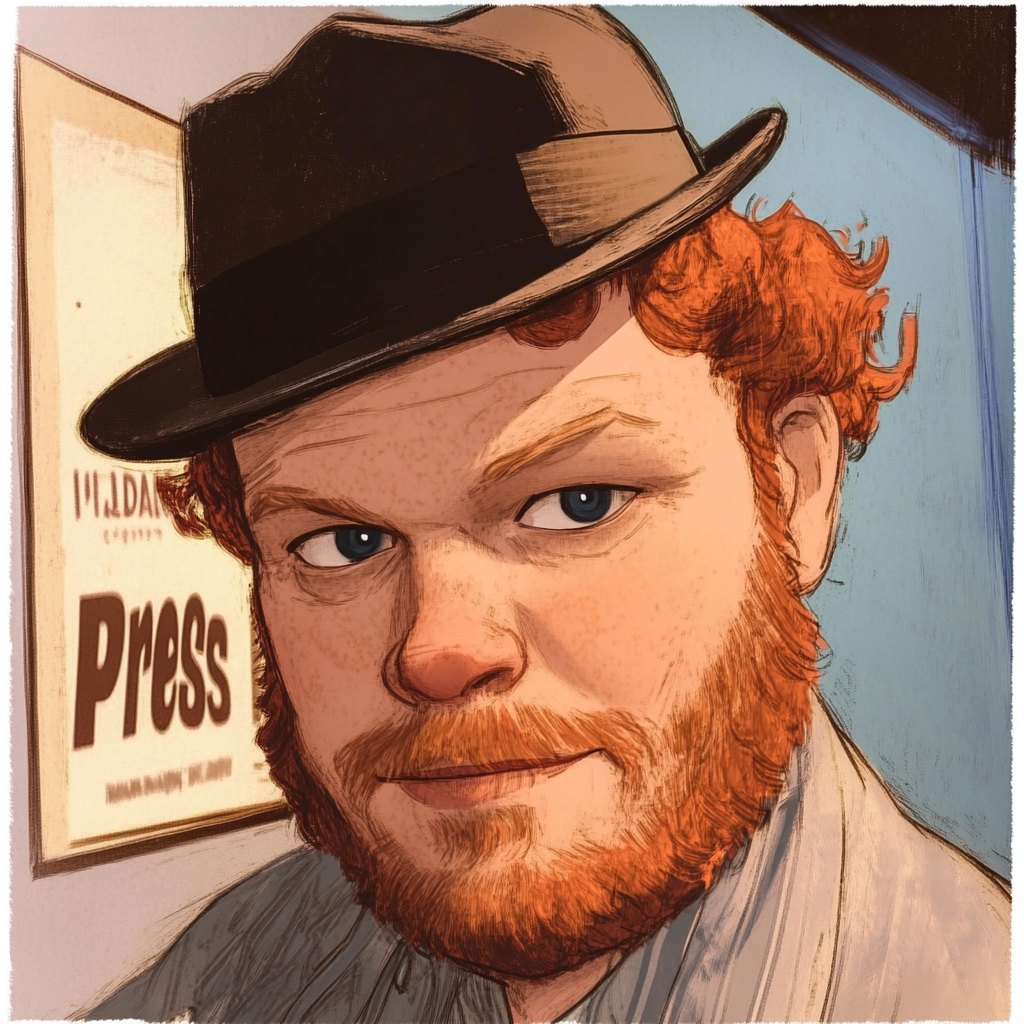When my first radio program director asked me at age 15, “Have you done this before?” my immediate answer was, “Absolutely.” I had no idea what I was doing, but I knew I had to sound confident. My first words on the air? A string of expletives. Someone had moved the microphone, it swung into my face, and out came, “&HG^!@!” That was my debut.
Starting out in radio
After that chaotic start, I was thrown into radio news. Splice tape? Sure, no problem. Make beat calls? Oh, I’m great at beat calls! Take readings? Been there, done that. The truth? I had no clue. I think a lot of us start our careers this way—pretending we know what we’re doing until, somehow, we actually do. Funny thing about radio: I just kept faking it for 40 years.
But isn’t that how it goes in many of our journeys? Whether it’s our career path, artistic endeavors, or even our personal growth, there’s a lot of faking it until we make it. We step into roles we’re not quite sure how to fill, try on different versions of ourselves, and learn by doing—often stumbling along the way.
The art of improvisation
Faking it isn’t just about survival; it’s about mastering the art of improvisation. When I was learning how to splice tape and make beat calls, I wasn’t merely making it up as I went along—I was improvising, creating a persona of the “experienced broadcaster” that I wanted to become. There’s something almost magical about it—acting as if we belong, even when we don’t quite feel it. It’s a skill that’s as much about resilience as it is about confidence. And here’s the kicker: it often works.
Confidence is usually a product of action, not thought. It doesn’t magically appear just because you decide to be confident; it comes from doing. Whether it’s in broadcasting or marketing, sometimes you have to throw yourself into the deep end—take a risk on an idea you’re not completely sure about and commit to it. That’s when the magic happens. The audience doesn’t see your uncertainty; they see your conviction.
Learning to learn
Let’s be clear: faking it doesn’t mean lying or pretending to be someone you’re not. It’s about embracing a mindset of continuous learning and curiosity. It’s about being okay with not knowing all the answers but being willing to find them out. It’s about understanding that expertise is often earned through trial, error, and a healthy dose of humility.
In my early days, every mistake was a lesson. That microphone hitting my face? It taught me to double-check everything before going live. The time I announced the wrong winner for a contest on air? That taught me to prepare meticulously. You could call these mistakes failures, but I prefer to think of them as chapters in my unofficial guidebook to radio broadcasting—“How to Not Get Fired, Volume 1.”
From radio waves to digital streams
After decades in radio, I found myself at the forefront of the industry’s shift into the digital space. And guess what? I was still faking it. The digital landscape was new, confusing, and constantly changing. But I dove in with the same attitude I had when I first stepped into the radio booth. I didn’t have all the answers, but I was willing to learn. I knew that the rules were different, but the principles remained the same: show up, act like you belong, and figure it out as you go.
Just like in my radio days, moving into digital required a willingness to experiment, to try new things without a guarantee of success, and to learn from the process. It was about staying nimble, embracing uncertainty, and cultivating a mindset that valued progress over perfection. Honestly, if you’re waiting for perfection, you might as well wait for a unicorn to apply for a job. Spoiler alert: it’s not happening.
Faking it in marriage
And it doesn’t stop there. My first amorous encounter? Faking it. My marriage? Well, maybe. I proposed to my wife while driving through the Caldecott Tunnel on our way to buy a lifetime supply of toilet paper. I’d never proposed before. I just thought, “Damn, 64 rolls of TP, that’s a commitment,” and out came a proposal. It was far from romantic, and let’s just say it didn’t go well. But we’ve been married now for 30 years, and she still puts up with me. I’ve been winging it in my marriage, too—learning what works, what doesn’t, and somehow managing to not completely screw things up. Turns out, she appreciates a guy who’s willing to laugh at himself and learn on the fly, even when he’s clearly making it up as he goes.
Still faking it
Now, as a writer and editor, I find that I’m still faking it in many ways. The challenges are different, but the approach remains the same. I’ve learned that writing is another kind of performance, another chance to connect, engage, and sometimes, to stumble. There’s always something new to learn, a new skill to develop, a new story to tell.
And maybe that’s the biggest lesson of all: that faking it is not about deception; it’s about aspiration. It’s about daring to step into a new reality, even when it feels like you’re a few steps behind. It’s about recognizing the gap between where you are and where you want to be, and having the guts to leap across it.
Even as we fake it, there’s something profoundly authentic about the process. At the heart of every successful endeavor is a genuine desire to grow, to improve, and to contribute something of value. That’s the paradox: in pretending to be what we’re not yet, we become a truer version of who we really are.
When I reflect on my years in radio, my transition into digital, and my current role as a writer and editor,husband and dog-dad, I realize that “faking it” has always been about learning, evolving, and stepping into roles that are new to me. It’s my way of saying, “I don’t know how to do this yet, but I’m willing to learn.” And if I ever do figure it all out, I’ll be sure to let you know. Don’t hold your breath.
Here’s to all of us who have ever felt like we were faking it—who stumbled through new jobs, new roles, new challenges with a mixture of fear and hope. Because in the end, faking it isn’t about pretending; it’s about becoming. It’s the first step toward being who we’re meant to be. So go ahead, take that step, fake it if you must, but always keep moving forward. And remember, if you can’t dazzle them with brilliance, well, you know the rest.

